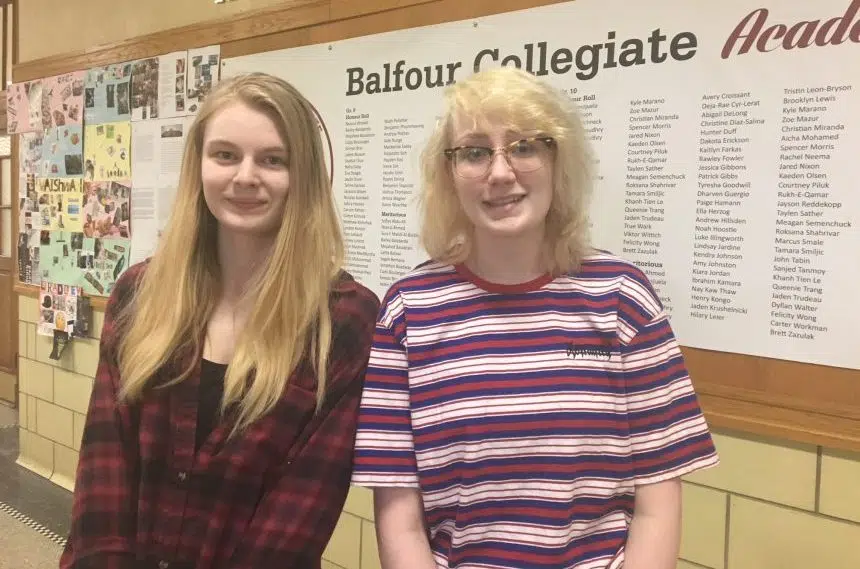Teenagers taking part in a mental health conference at Balfour Collegiate say it’s definitely time to address these issues in school.
“I think that we needed it for sure because everyone is a little bit high strung in the school, but also I don’t think it’s ever a focus,” Grade 12 student Rachel Balfour commented. “You have years of phys. ed., but nothing that deals with anything mental, so I think after a while it just gets too heavy for students.”
Balfour said she has dealt with a lot personally, and knows many of her classmates have also gone through a lot.
From her perspective, people who don’t know how to handle mental health issues can sometimes make the problem worse.
“Just from my personal experience if you need mental health help, and the people around you don’t realize or don’t know what to do, they end up kind of digging you even farther into whatever hole you’re already in,” Balfour explained.
While adults may slightly remember the emotions that come with being a teenager, she said there is a lot they don’t seem to understand about how things have changed.
Pointing to social media and the internet in general, she said there are vast possibilities for what young people can wind up involved in.
“We have so much more social contact and so much more that can go wrong and I can’t name a single adult who knows all of it or who would know how to deal with all of it,” Balfour said.
Taylor Fink is also in Grade 12 and she agrees social media can be a big factor when it comes to the stress of acceptance.
“That’s a really easy way to bully people I guess, because you’re just a name on a screen,” she said.
While the LGBTQ+ community is gaining more acceptance, she adds there are a lot of people who still don’t understand those types of issues.
For her part, Fink adds that teenagers are also facing an overwhelming amount of pressure to figure out their futures now.
“When we’re like 18 or 19 we have to decide what we want to do for the rest of our lives because if we pick the wrong thing then it’s not going to be good and if we don’t pick a good thing then we’re going to be kind of screwed over,” Fink explained.
She said the acceptance of mental health issues is improving, but it still can be a taboo subject.
“A lot of adults still don’t understand that and still don’t know how to handle that,” Fink commented.
Too often, she said the concerns of teenagers get kind of brushed aside as they are told to just pick themselves up and move on.
This student conference was set up directly in response to a national survey that showed students are very concerned about mental health.
The agenda covers a wide range of issues featuring key-note speakers, sessions n how to handle the stress of post-secondary education, LGBTQ+ issues and dealing with social media. Some of the additional sessions included yoga, music therapy and a traditional First Nations smudging ceremony.
Both Fink and Balfour are looking forward to seeing how this conference might change some perspectives and improve the culture in the school.











